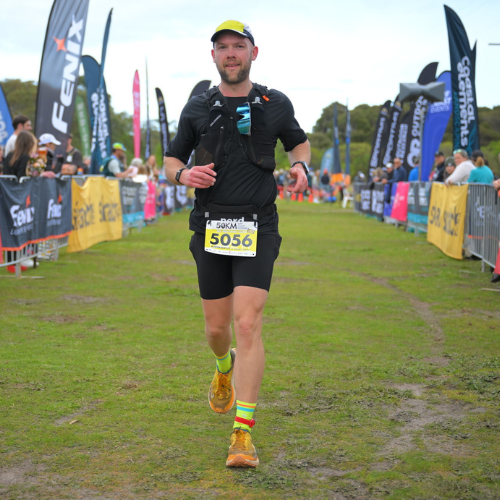Celebrating Women’s History Month: A spotlight on our female ovarian cancer researchers
By Emily Usher | 5 March 2025
Updated 11 March 2025

Dr Jessica Holien: Tackling treatment resistance
Head of Computational Biology, RMIT University

Dr Jessica Holien is a leading scientist in ovarian cancer research, dedicated to uncovering why some cancer cells become resistant to chemotherapy. This resistance is a major challenge, often rendering treatments ineffective over time. By studying the genetic changes that allow cancer cells to adapt and survive, Dr Holien aims to develop strategies that make therapies more effective and longer-lasting.
Beyond treatment resistance, she is also working to identify biomarkers that could lead to earlier diagnoses. “Ovarian cancer is often diagnosed late because symptoms are vague and can be mistaken for other conditions,” she explains. “If we can develop better diagnostic tools, we can intervene earlier and improve survival rates.”
Dr Holien’s research, funded in part by Cure Cancer, is already producing significant breakthroughs:
- New drug targets for mucinous ovarian carcinoma (MOC)
A novel bioinformatics approach has been developed to identify potential drug targets for this rare and treatment-resistant form of ovarian cancer. By mapping protein interactions in cancer cells, her team has pinpointed critical proteins that, when targeted, could slow or stop disease progression—offering hope for more effective treatments.
- Targeting KIF18A: A key to stopping cancer growth
Dr Holien’s team has identified KIF18A, a protein essential for cancer cell division, but not necessary for normal cells. Inhibiting KIF18A could provide a targeted approach to disrupt cancer growth without harming healthy tissue, paving the way for safer and more effective treatments.
Dr Holien is also passionate about diversity in medical research. Historically, drug development has been dominated by male researchers, and until 1993, women and people assigned female at birth were rarely included in clinical trials. As a result, many treatments are based on male physiology, leading to women and people assigned female at birth experiencing up to 75% more adverse effects from prescription drugs.
“In commercial drug discovery, women are still underrepresented,” she says. “Our project on MOC has been led by an all-female team. We bring a unique perspective, designing trials that consider gender differences in drug responses—something particularly crucial for diseases like ovarian cancer.”
Professor Caroline Ford: A new era of early detection and targeted treatments
Group Leader of the Gynaecological Cancer Research Group at UNSW

Professor Caroline Ford is determined to transform the outlook for women and people with ovaries diagnosed with ovarian cancer. A passionate advocate for diversity in STEM, she leads pioneering research to develop better diagnostic tools and targeted treatments.
One of her key projects focuses on identifying methylated DNA in blood to create a reliable early detection test. “Most ovarian cancer cases are diagnosed at an advanced stage, making treatment more complex,” she explains. “Our goal is to develop a highly sensitive test that can detect the disease at its earliest stages, when surgery has the best chance of success.”
Prof Ford's team is also working on innovative treatments by investigating two genes that become abnormally activated in ovarian cancer. Their studies have shown that silencing these genes in lab models can stop cancer growth. Now, they are developing new treatments and collaborating with international researchers to move these discoveries towards clinical trials.
“As a feminist, I’m deeply invested in women’s health,” she says. “Ovarian cancer has been overlooked and underfunded for far too long. While I feel privileged to lead a dedicated team, it’s heartbreaking to see how few treatment options are available for patients. Meeting incredible people affected by this disease motivates me every day to push our research forward.”
Dr Emily Colvin: Pioneering new treatments
Kolling Institute of Medical Research, Hormones and Cancer Division

Dr Emily Colvin is dedicated to finding better treatments for ovarian cancer, focusing on how the environment around a tumour helps cancer cells grow and spread. Her research has revealed that certain non-coding genes, known as lncRNAs, play a key role in how ovarian cancer interacts with its surroundings.
She has discovered that cancer-associated fibroblasts (CAFs)—a type of support cell within tumours—help cancer cells survive by sending out small genetic messengers (lncRNAs) in tiny packages called extracellular vesicles. These messages help cancer cells avoid the immune system and spread throughout the body. By understanding this process, Dr Colvin hopes to find new ways to block these signals and stop the cancer from growing.
In addition to this, she is leading efforts to identify lncRNAs that could serve as biomarkers—biological clues in the body that may help doctors predict how a patient will respond to treatment. This could lead to more personalised and effective therapies for ovarian cancer patients.
Dr Colvin is passionate about making a difference in the lives of those affected by ovarian cancer. “Talking to patients about my research and hearing their experiences is incredibly rewarding,” she says. “It puts everything into perspective and reinforces why this work is so important.”
She also stresses the importance of ongoing investment in ovarian cancer research. “We need better treatments, and the only way to make progress is through research. The more we focus on early detection and new therapies, the better the future will be for women with ovarian cancer.”
Professor Nikola Bowden: Repurposing old drugs for new ovarian cancer treatments
School of Medicine and Public Health, University of Newcastle & Vanessa McGuigan Memorial HMRI Fellow in Ovarian Cancer

Professor Nikola Bowden is leading groundbreaking research to find new treatment options for ovarian cancer by looking at old drugs in a new way. As the head of the Australian Program for Drug Repurposing for Treatment-Resistant Ovarian Cancer, she and her team use advanced technology to screen existing medicines that might be effective in fighting ovarian cancer. One of these promising drugs is set to enter clinical trials this year, bringing fresh hope to patients with limited treatment options.
Professor Bowden’s work builds on her success in melanoma research, where treatments she helped develop have already reached clinical trials. Seeing patients respond to these treatments has been one of the highlights of her career, and now she is determined to achieve the same breakthrough for ovarian cancer.
Her passion for this research is deeply personal. A former hockey teammate diagnosed with ovarian cancer asked her to help find better treatments. This, along with support from the McGuigan family (who lost their daughter Vanessa to the disease) led to her shift from melanoma to ovarian cancer research. In 2018, the McGuigans funded a 10-year fellowship to help her dedicate her work to tackling ovarian cancer.
Professor Bowden is committed to improving survival rates for women and people assigned female at birth with ovarian cancer. “The treatment options for ovarian cancer have not advanced at the same rate as most other cancers,” she explains. “It is a rare disease that affects only women and receives very little funding or research attention. We need to change that so women with ovarian cancer have the same chances of survival as those with more common cancers.”
She is also a strong advocate for women in STEM, recognising the importance of increasing opportunities for women to lead in science. “Women make up more than half the STEM workforce, yet they remain underrepresented in leadership roles. We need more visibility and recognition so young girls can see that a career in science is possible for them too.”
Through her pioneering work, Professor Bowden is not only advancing ovarian cancer research but also championing a future where women in science and medicine have equal opportunities to drive innovation and discovery.
Looking to the future: The importance of funding and support
The work of researchers like Dr Jessica Holien, Prof Caroline Ford, Dr Emily Colvin and Prof Nikola Bowden is crucial in transforming ovarian cancer detection and treatment. However, progress is only possible with continued funding and public support.
"Improvements in cancer can only come from research, and research can only be facilitated through funding,” says Prof Caroline Ford. “Funding is crucial. It’s absolutely key to not only enabling the research but to make sure we have a new pipeline, a new generation of cancer researchers coming through the system, and not leaving due to lack of funding."
As we celebrate the achievements of women in science this Women’s History Month, it’s essential to recognise the urgency of ovarian cancer research. By investing in these brilliant minds and their groundbreaking work, we can move closer to a future where ovarian cancer is no longer a life-threatening diagnosis.
Together, we can drive meaningful change and improve outcomes for women and people assigned female at birth.
To support ovarian cancer research and help fund the next breakthrough, you can head to the link below:










